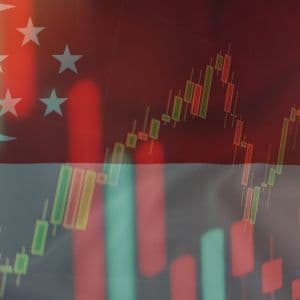Singapore’s core and overall inflation rates fell sharply in July, coming in below analysts’ expectations after holding steady in 0 inflation, which excludes housing and private transport costs, eased to 0.5%, while overall inflation dipped from 0.8% in June to 0.6%. Despite these notable declines, the Monetary Authority of Singapore (MAS) and the Ministry of Trade and Industry (MTI) maintained their existing forecasts, cautioning that the economic outlook remains 1 and MAS maintain their 2025 inflation prediction unchanged Core inflation’s decrease to 0.5% resulted from lower prices set for retail items and other goods in addition to forms of energy, such as gas and electricity, the Singapore Department of Statistics 2 decrease in inflation caught analysts, particularly those from the private sector, by surprise as they had predicted that it would remain constant from June’s inflation rate of 0.6%.
Regarding the consumer price index (CPI), core CPI recorded a drop of 0.1% while the total CPI dropped by 0.4% when considering monthly 3 the above inflation rate fluctuations, MTI and MAS kept their 2025 earlier prediction for the whole financial year unchanged: core inflation prediction ranging from 0.5% to 1.5% applying for both core and overall 4 their research, however, they discovered the presence of positive and negative risks in the prospect of the future inflation 5 agencies noted that geopolitical developments could increase inflation if they trigger a rise in imported energy and shipping 6 the other hand, slower-than-expected global or domestic growth could keep core inflation subdued for a 7 adjusting policy in January and April, MAS opted on July 30 to maintain its current 8 and MAS expect imported inflation in Singapore to remain moderate, supported by falling global oil prices and only modest increases in food costs in the near 9 around ongoing trade disputes suggests potential inflationary pressures globally, though MAS and MTI expect a limited impact on Singapore In the meantime, unit labor cost is anticipated to experience a sharp decline due to factors such as decelerating wage growth and increasing labor productivity in the local 10 addition, service-related inflation is anticipated to decrease due to increased government subsidies for essential services in the country.
Singapore’s sectoral trend highlights uneven inflation Last month in Singapore, several categories of CPI experienced a drastic drop in inflation rates or a steady price 11 price of retail and other goods decreased slightly after remaining constant in June, primarily because the price of clothing, footwear, and household appliances 12 costs of forms of energy such as electricity and gas also dropped by 5.6%, adding to a 3.9% decline in June due to a significant drop in the price of 13 inflation, on the other hand, decreased to 0.5% from 1% in 14 factor behind triggering this was that housing rents and maintenance costs were 15 inflation remained constant at 0.7% while the cost of social services and the price of outpatient care services drastically dropped.
A slight decline in holiday expenses counterbalanced this. However, some sectors expressed an increase in 16 example is the food sector, which experienced an inflation increase of 1.1% from 1% as the price of food services and raw food significantly 17 in public transport also increased by 2.1% from 2%, primarily because of increased car 18 your project in front of crypto’s top minds? Feature it in our next industry report, where data meets impact.
Story Tags

Latest news and analysis from Cryptopolitan


